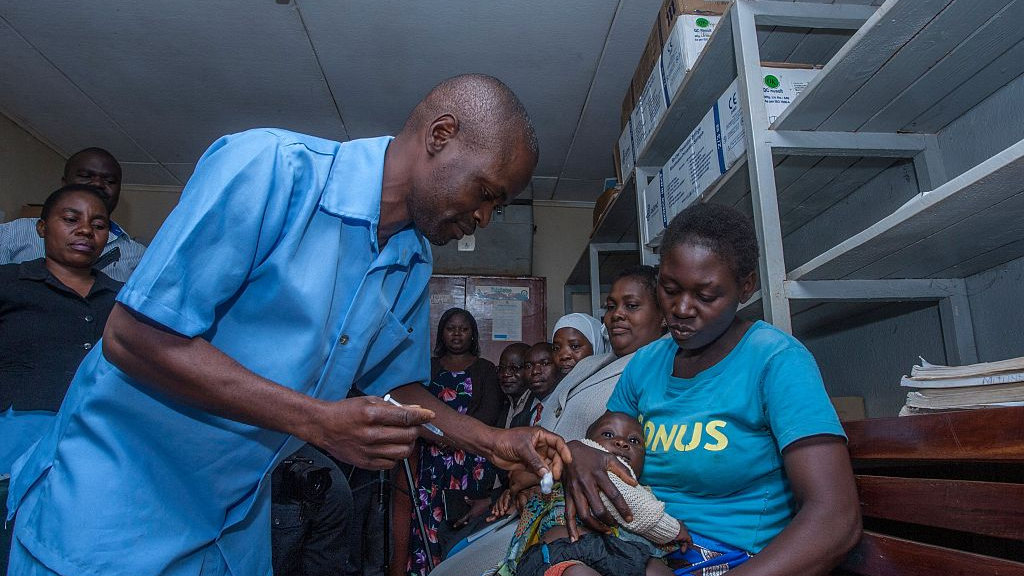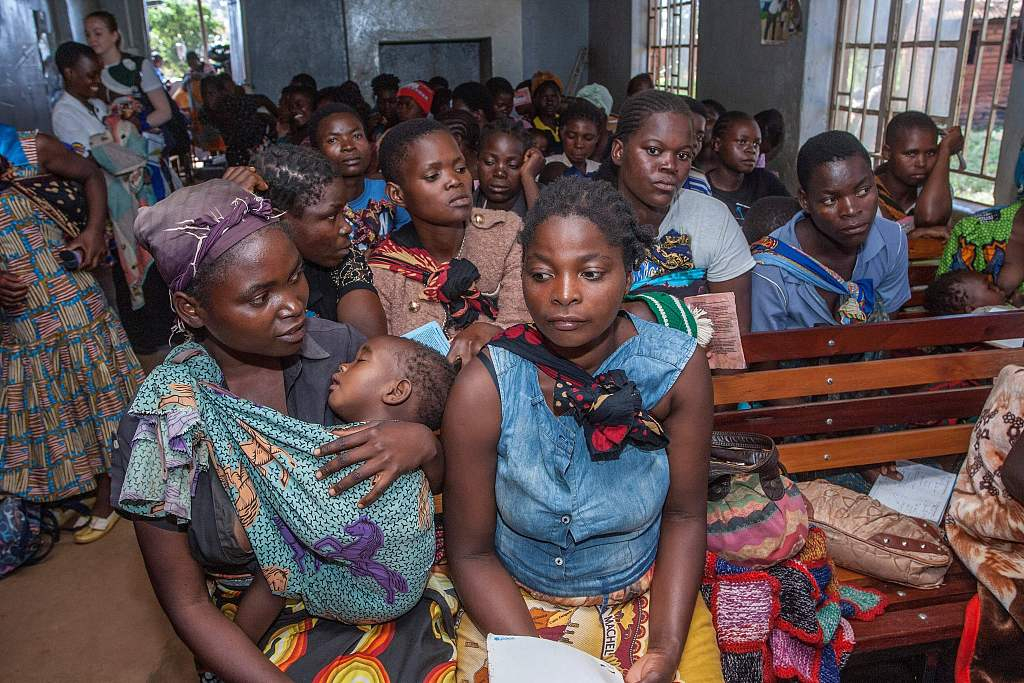

Health staff member prepares to give a dose of the malaria vaccine to the first recipient at Mitundu Community hospital in Lilongwe, Malawi. /VCG Image
The World Health Organization (WHO) says it’s theoretically possible to wipe out malaria, but probably not with the imperfect vaccine and other control methods being used at the moment.
In 2016, WHO identified 21 countries, spanning five regions, that could defeat malaria by 2020 considering the likelihood of elimination across key criteria, with one common goal: to achieve zero indigenous cases of malaria within the 2020 timeline. But whether the goal can be achieved before the deadline remains uncertain.
China, the most populous nation in the world, has recorded zero indigenous cases of malaria since August 2016.
Located in the southwest of China, Yunnan Province is renowned for its moist and warm weather due to its low latitude. The mild climate, especially during the rainy season, makes life easier for the mosquitoes and other picnic pests to transmit diseases including malaria. After the Chinese government announced a national policy to eliminate malaria in 2010, Yunnan had a great number of counties considered at high risk for such a disease.
Over the last decade, the Yunnan Institution of Parasite Diseases has worked with the local Center for Disease Control and Prevention (CDC) to wipe out local cases of malaria across the province. Thanks to the strict control of environmental hygiene and advanced medical care, Yunnan has achieved a zero indigenous malaria case for several years.
However, Yunnan still faces potential threats as it borders three malaria-endemic countries -- the Laos, Myanmar and Vietnam. As people travel in and out of Yunnan from these three countries, the province is at risk of imported cases of malaria.
Dr. Pedro Alonso, the U.N. health agency’s global malaria director, said WHO is “unequivocally in favor” of eradication, but that major questions about its feasibility remain. In a press briefing on Thursday, Alonso acknowledged that “with the tools we have today, it is most unlikely eradication will be achieved.”
Alonso was presenting the results of a WHO-commissioned report evaluating if eradicating malaria should be pursued. He said the experts concluded lingering uncertainties meant they were unable to formulate a clear strategy and thus couldn’t propose a definitive timeline or cost estimate for eradication.
WHO has long grappled with the idea of erasing malaria from the planet. For decades, health officials were chastened from even discussing eradication, until the Bill and Melinda Gates Foundation threw its considerable resources behind the idea.

Mothers wait for their sick babies to receive treatment at the beginning of the malaria vaccine implementation pilot program. /VCG Image
Although several African countries began immunizing children against malaria in national programs this year, the shot only protects about one third of children immunized. The parasitic disease kills about 435,000 people every year, mostly children in Africa.
“An effective vaccine is something we desperately need if we’re ever going to get malaria under control and we just don’t have it,” said Alister Craig, dean of biological sciences at the Liverpool School of Tropical Medicine.
A previous trial showed the vaccine was about 30 percent effective in children who got four doses, but that protection waned over time.
Craig also raised concerns about whether malaria programs would be able to raise the billions needed given other competing eradication campaigns, like those for polio, guinea worm and lymphatic filariasis.
“Should we really be pushing for malaria or should we concentrate on getting some of those other diseases out of the way first?” he asked.
Other experts agreed that eradicating malaria in the coming years seems aspirational.
“It’s a long game and there will be many bumps on the road,” said Sian Clarke, co-director of the malaria center at the London School of Hygiene and Tropical Medicine. Still, Clarke said that eradication might only be achieved if there is a sense of urgency, given how malaria spreads; the parasitic disease is transmitted to people by mosquitoes.
“The longer it takes, the more opportunity there is for the parasite to evolve,” she said. “There will be a lot of pressure on the parasite to evolve a mechanism of survival, so this is something that if it’s to be done, should be done relatively quickly.”
(With input from AP)

Copyright © 2018 CGTN. Beijing ICP prepared NO.16065310-3
Copyright © 2018 CGTN. Beijing ICP prepared NO.16065310-3